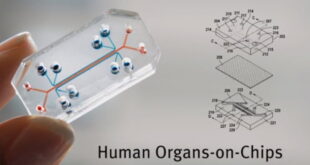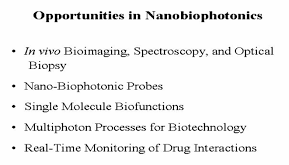Artificial Intelligence technologies aim to develop computers, or robots that match or exceed the abilities of human intelligence in tasks such as learning and adaptation, reasoning and planning, decision making and autonomy; creativity; extracting knowledge and making predictions from data. Within AI is a large subfield called machine learning …
Read More »China emotional surveillance technology monitoring employees, people’s loyality and soldiers using AI based brain waves and facial expression analysis
China is reportedly testing a sophisticated facial recognition system that could closely monitor targeted people in a Muslim-dominant province. The network is installed at residents’ homes and workplaces in the Xinjiang Autonomous Region in western China, reported Bloomberg. The new face-reading AI technology would alert the authorities if any suspects …
Read More »US Army Medical Modernization Strategy(AMMS) to counter future medical threats through disruptive technologies
As the Army charts a course to modernize its force by 2035 with a focus on multi-domain operations, the service is also looking to fundamentally transform its medical capabilities to take advantage of and move at the pace of technological advancements. The Army must modernize its medical formations and capabilities …
Read More »DARPA Cornerstone to protect soldiers against blast or impact-induced behavioral and cognitive injury
Some 1 million people suffer traumatic brain injuries annually. Concussion can cause inner ear damage that can cause dizziness, anxiety, depression, moodiness, balance problems and irritability, said Elizabeth Kirkpatrick, the physical therapist for the Fort Drum Traumatic Brain Injury Clinic. The three different forms of TBI—severe, moderate, and mild—all manifest …
Read More »DARPA MAGIC
Medical assistants are health care professionals who assist doctors in clinics and medical offices. Medical assistants work alongside physicians, mainly in outpatient or ambulatory care facilities, such as medical offices and clinics. A medical assistant (or MA) is often considered a physician’s right hand. These allied health professionals assist in …
Read More »Organ-On-Chip technology and Market
In the UK, there are some 7,000 people on the list who are in dire need of organ transplants and In the US, the number awaiting transplant is around 120,000, with 20 dying each day for want of an organ. Current organ transplant patients have to take immunosuppressant drugs all …
Read More »Animals and Insects Warfare employ them from Mobile Biological Sensors to weapons to attack the enemy
Throughout history animals have accompanied men into combat as modes of transport and communication, protectors and companions. They have fulfilled a variety of roles – from carrying men and munitions to evacuating the wounded, performing guard and sentry duties to carrying out search and rescue operations, detecting gas in trenches to locating …
Read More »Synthetic Biology can fix Supply Chain Challenges
Our livelihoods – food, jobs, energy – depend on functioning and resilient global supply chains. Unfortunately, the uncertainty caused by the progress of the COVID-19 pandemic from region to region has made it difficult to resume business on a global scale. Since the beginning of COVID-19, companies and countries …
Read More »DARPA ReVector prevents pathogens from entering human body by modifying Skin Microbiome throgh synthetic biology
The mosquito is the deadliest animal on the planet, responsible for spreading malaria, which kills more than 400,000 people every year. The American Society for Microbiology estimates that there are trillions of microbes living in or on the human body that constitute the human microbiome. The human skin microbiome …
Read More »Nanobiophotonics multidisciplinary field of nanotechnology, biomedical science, and photonics Applications
This is the age of multidisciplinary frontiers in science and technology where major breakthroughs are likely to occur at the interfaces of disciplines. Light has always fascinated mankind and since the beginning of recorded history, it has been both a subject of research and a tool for the investigation …
Read More » International Defense Security & Technology Your trusted Source for News, Research and Analysis
International Defense Security & Technology Your trusted Source for News, Research and Analysis





